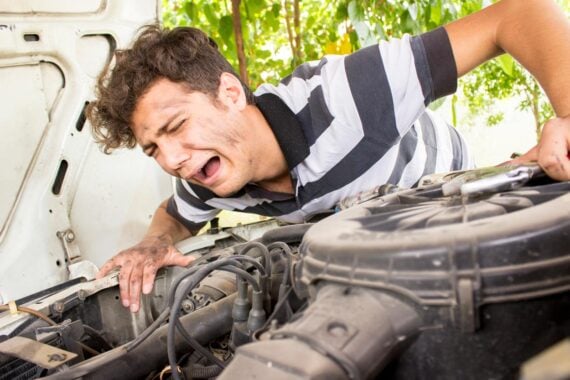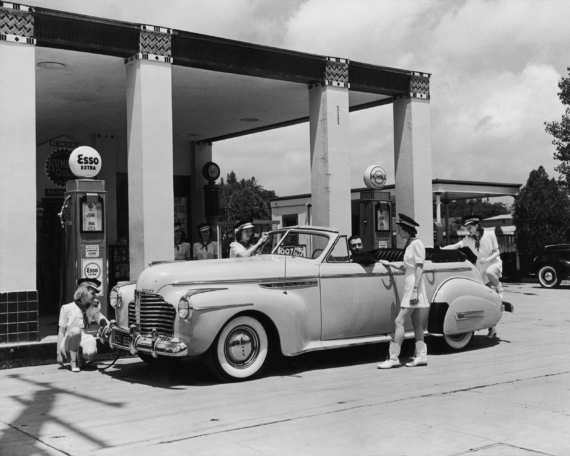Keeping your vehicle running smoothly sometimes means getting your hands dirty, but not every repair is worth tackling yourself. We’re here to explain which car maintenance tasks you should never try to do on your own, even if you’re confident in your DIY skills. We highlight the potential safety risks and costly consequences to help you understand why it’s smart to leave certain jobs to trained mechanics.
We’re well aware that many of you, dear readers, are home mechanics, and this doesn’t apply to you. This is aimed at those of us who might be convinced by a well-edited YouTube video to take on a deceptively complicated task.
1. Repair Or Recharge Your AC
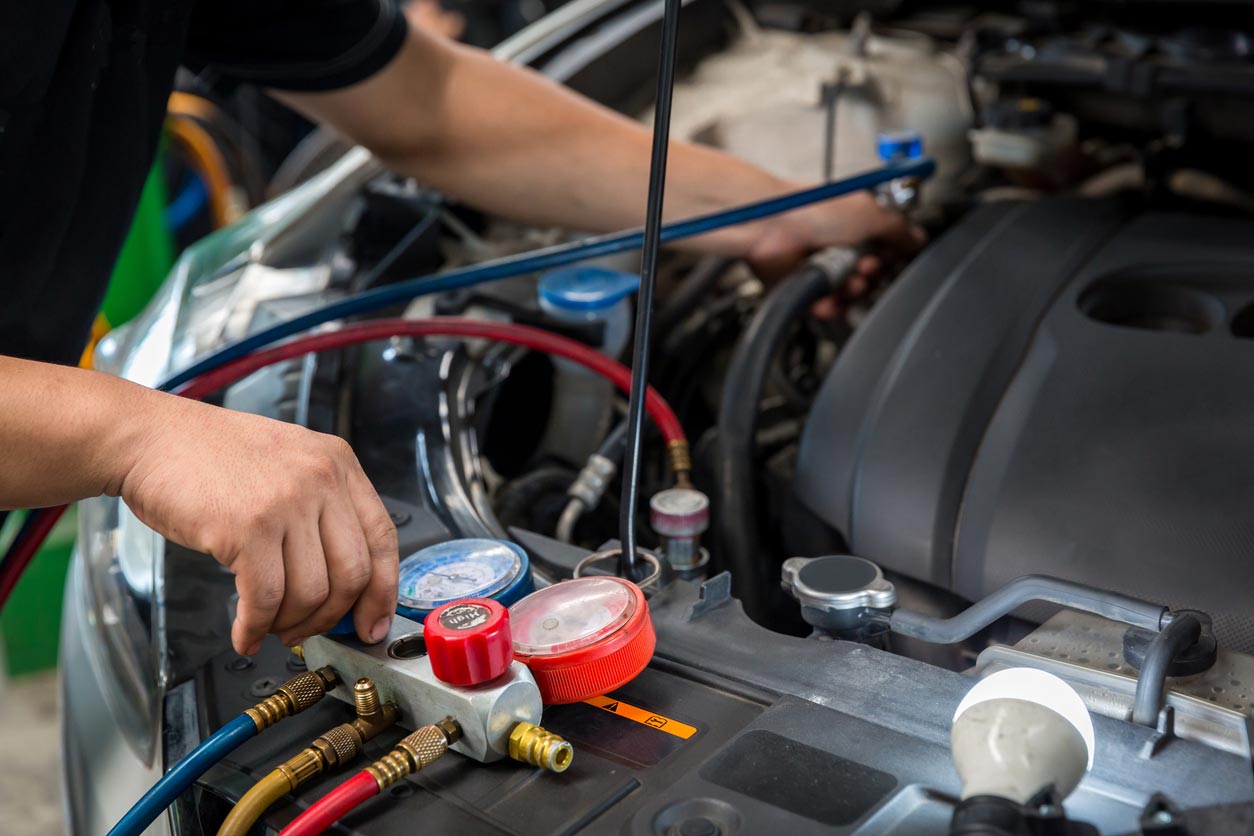
When your car’s air conditioning stops blowing cold air, it’s frustrating, especially in the summer. You might be tempted to crab a refill kit from the auto-parts store and top it off yourself, but hold up.
The refrigerants inside your AC system are hazardous if handled improperly, and the system is sealed. If it’s low on refrigerant, that usually means there’s a leak. Simply adding more refrigerant won’t fix the leak, and you could end up harming the environment or yourself. Trained technicians have the equipment to diagnose and repair AC problems safely.
2. Repair The Transmission
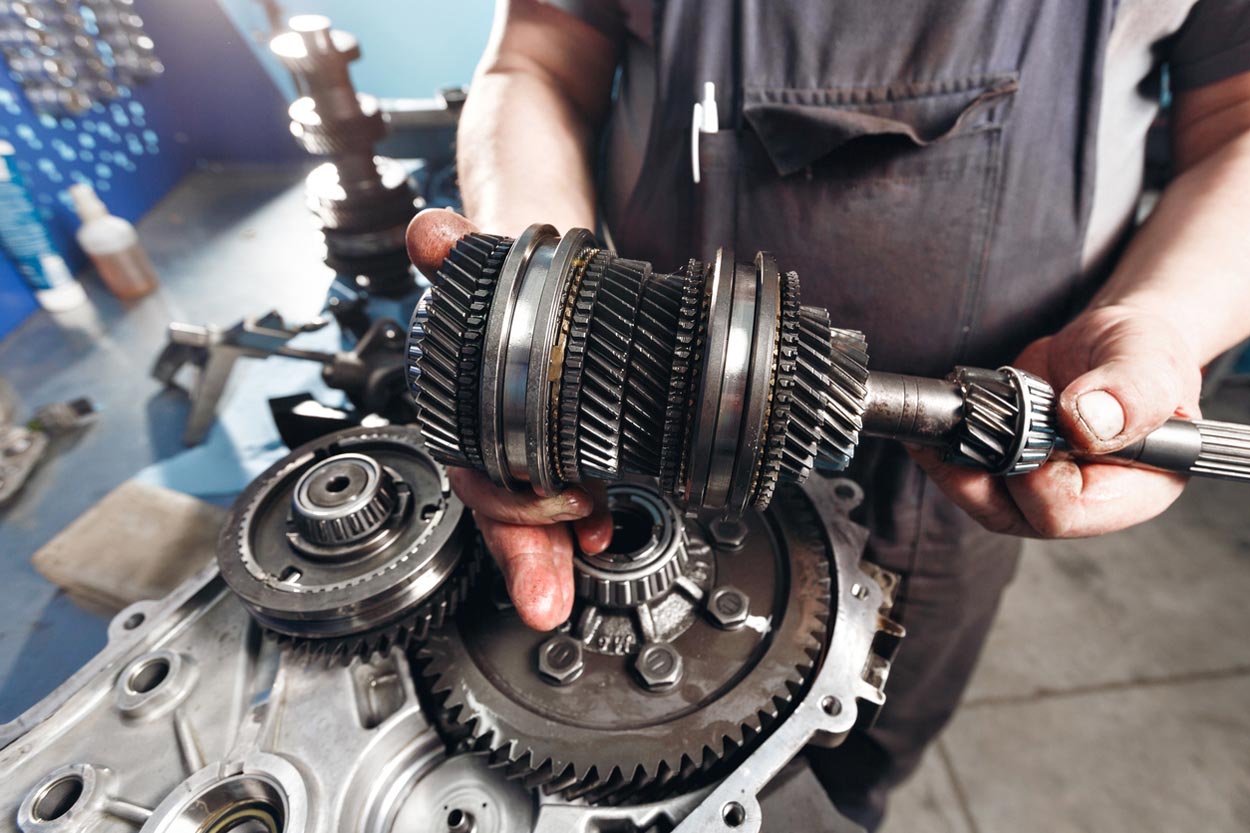
Your transmission is one of the most complicated parts of your vehicle. Automatic transmissions have hundreds of pieces working together in perfect harmony to keep your car moving smoothly. Gears, clutches, pumps, and a torque converter all rely on precise alignment.
Tearing down and rebuilding a transmission without proper experience and tools is a huge challenge. If you suspect your transmission is slipping or making unusual noises, call a professional rather than risk turning a minor issue into a major repair.
3. Replace Suspension System Components
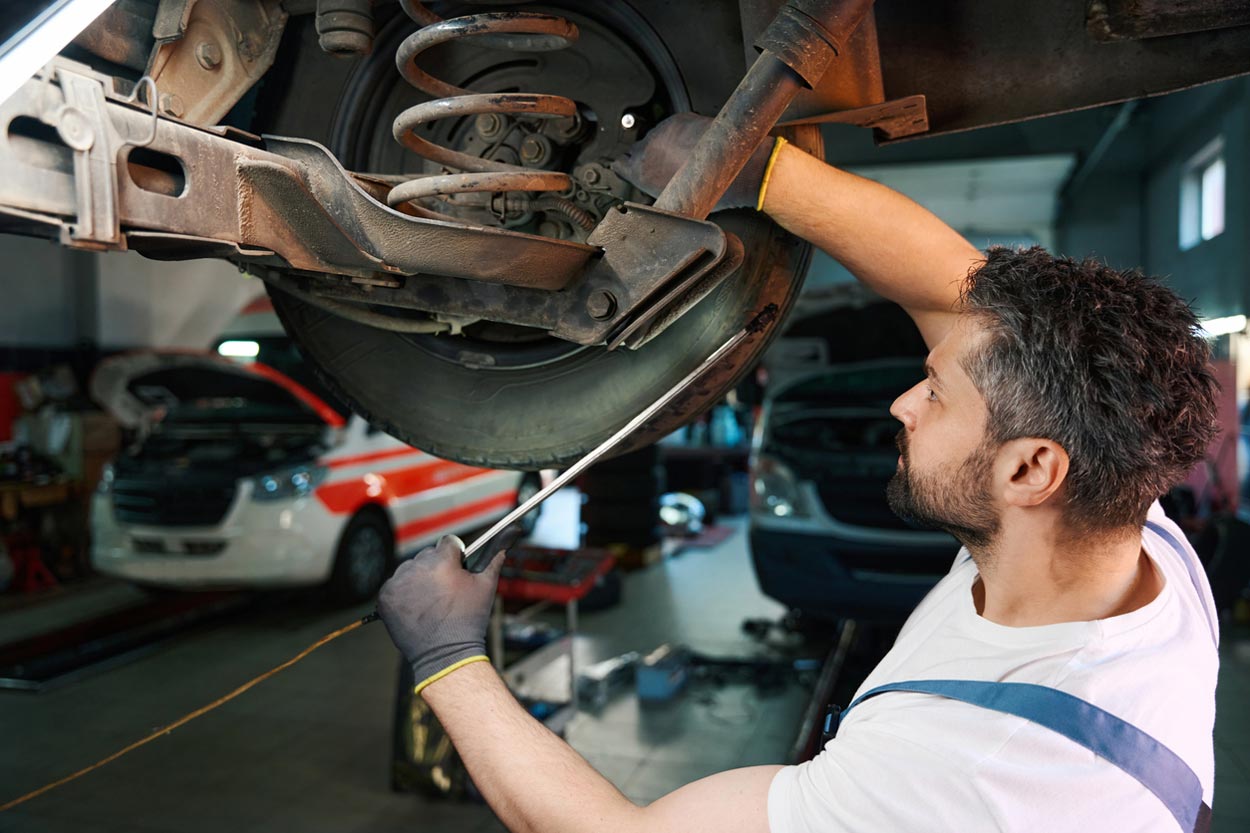
The suspension system doesn’t just give you a comfortable ride; it keeps your vehicle balanced and responsive. When shocks or struts wear out, the car can bounce or handle poorly.
It might seem straightforward to swap out these parts, but many suspension components are under tremendous tension. Removing or installing coil springs without specialized equipment can be very dangerous; a sudden release of energy could cause serious injury. Mechanics have the right tools and know how to handle them safely.
4. Replace Brake Pads, Rotors, or Brake Fluid
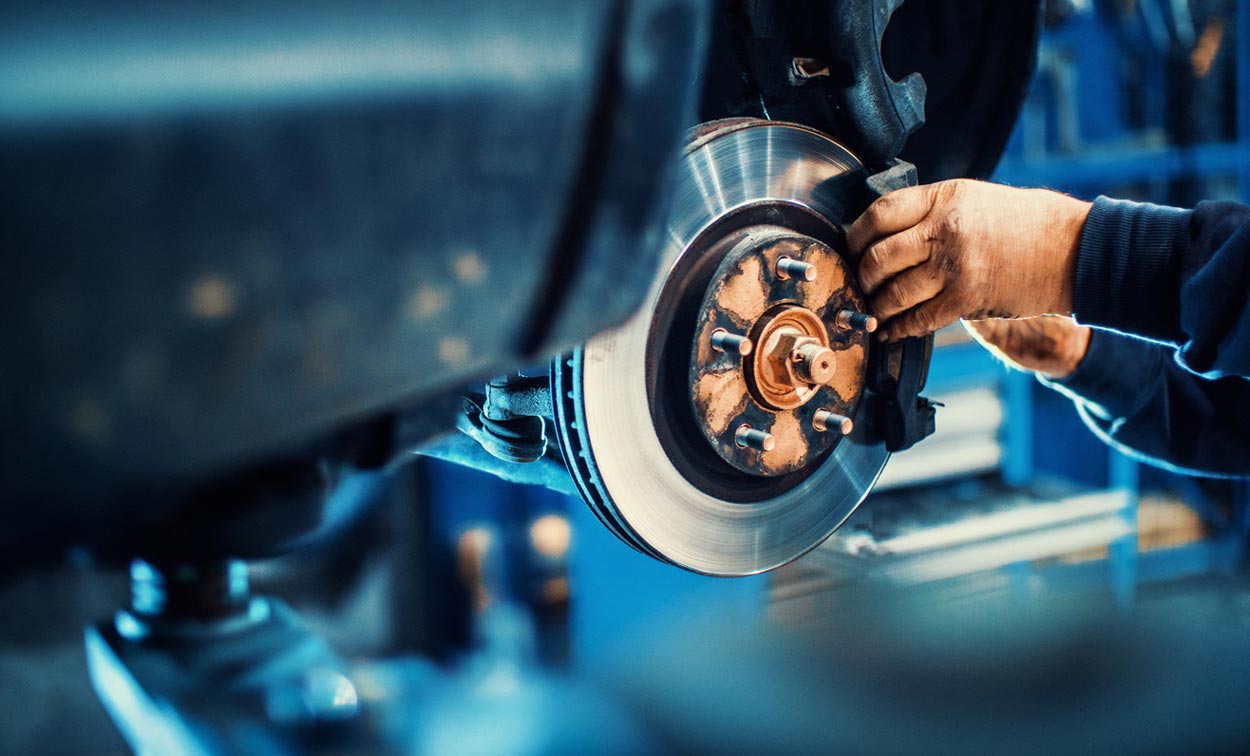
Brakes wear down and eventually need to be replaced. Changing pads or fluid seems like a simple task, but doing it wrong can compromise your ability to stop safely.
If pads are installed incorrectly or the braking system isn’t bled properly, you could end up with uneven braking, excessive wear, or failure in an emergency. Skilled mechanics replace brake components every day and know how to make sure everything is installed correctly.
5. Replace Timing Belt Or Chain
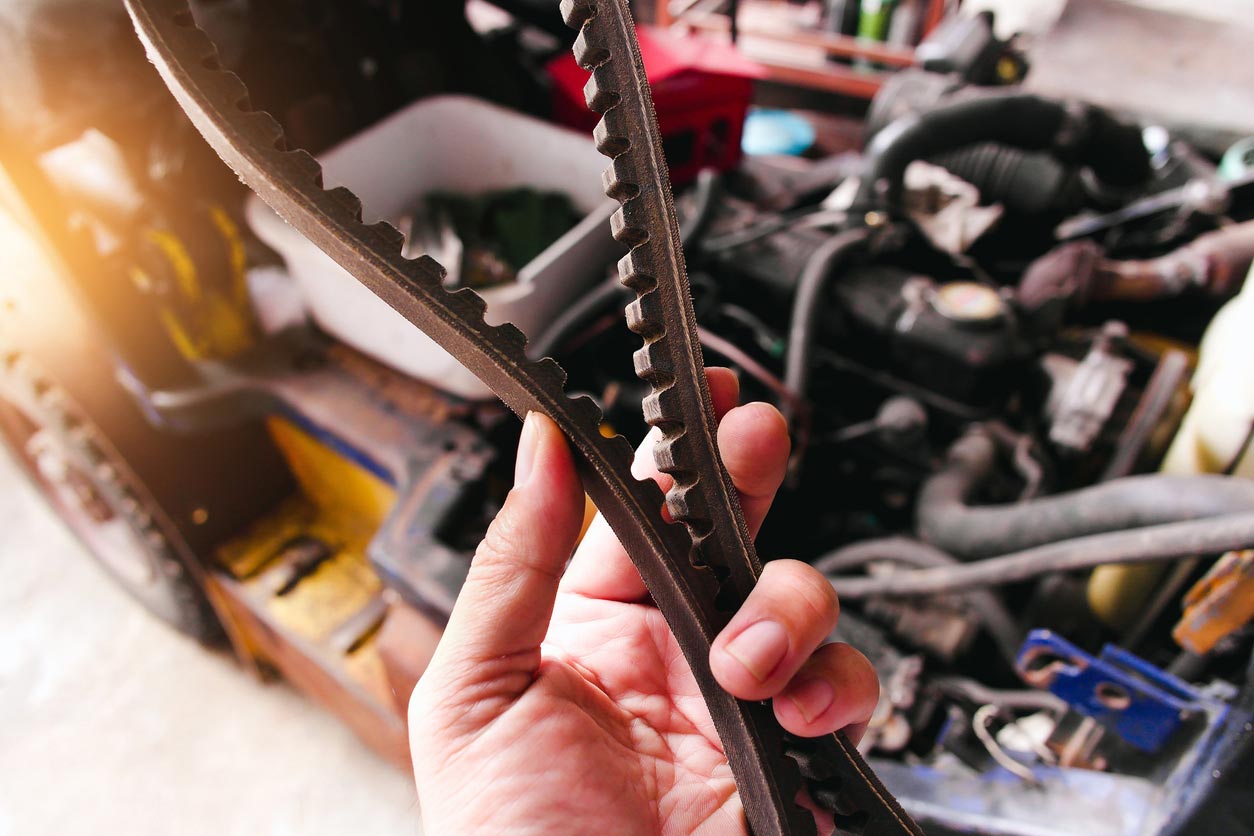
A timing belt or chain keeps the crankshaft in sync so valves open and close at the right moment. In older cars, swapping out a timing belt was fairly straightforward. Today’s engines are more complex, and many are interference engines, meaning the valves and pistons occupy the same space at different times. If a belt or chain is off by even a small margin during installation, the pistons can strike the valves, causing costly damage. Because of the precision required, it’s a job best left to an experienced technician.
Trending on Cheapism
The Bottom Line
DIY car repairs can be rewarding, and there are many tasks you can handle yourself, such as changing wiper blades or replacing an air filter. But for these tasks, the risk and complexity outweigh the savings. A professional mechanic will have the training and tools to do the job correctly, which could save you money and headaches down the road.
Related stories:
- Avoid common car‑wash mistakes – Regular washes help ward off rust, but many drivers unknowingly make mistakes at self‑service and full‑service facilities.
- Pro car‑cleaning tricks – Paying for a professional detail is nice, but it’s easy to make your ride shine at home.
- Spot oil‑change rip-offs – DIY oil changes can save you money and ensure the job’s done right. Commercial oil‑change shops sometimes cut corners or upsell unnecessary services. Discover the seven scams to watch for.
